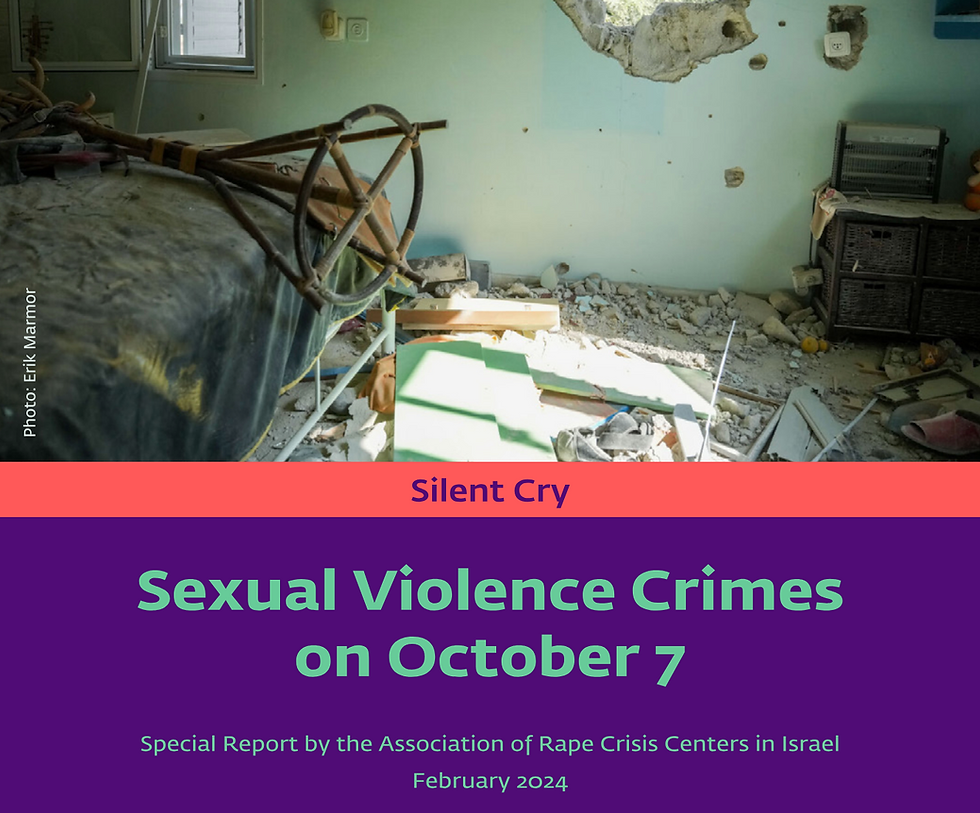Why Rape Survivors’ Testimonies Are Rare in Sudan
- Genocide Watch

- Dec 13, 2023
- 3 min read
Updated: Aug 19, 2024
Genocide Watch
By Bhaswati Bhattacharjee
“They were barbaric. They took turns raping me under the tree where I had gone to gather wood to [make a fire to] keep warm,” said Kolthoum (name changed), a Masalit woman in her 40s from West Darfur, in a confidential interview with BBC in July 2023.
She identified her assailants as soldiers of the Rapid Support Forces (RSF). The RSF were formerly known as the Janjaweed, Sudanese government-supported Arab militias that committed the Darfur genocide from 2003 – 2020. The RSF is in a civil war with the Sudanese Armed Forces for control of all of Sudan. The RSF has again focused its genocide on Darfur. Its goal is the same: to drive black Africans out of Darfur and to replace them with Arabs.
Between April and September 2023, 136 reported cases of rape against Darfuri girls and women have been well-documented. Most were committed by the RSF militia. However, unlike Kolthoum, most survivors are not willing to come forward and share their stories.

Hala al-Karib, a Sudan-based researcher and activist, says: “Some (survivors) do not want to speak about it. Some felt that they would rather go into hiding. Very few have elaborated on what has happened to them.”
As Sulima Ishaq, the head of Combating Violence against Women and Children, says, “Many survivors have fled to Chad. That prevents them from reporting the crimes against them. They often cannot get sufficient medical care in Sudan. That pushes them to seek help in neighboring countries.”
Rape is being used in Sudan as a weapon of war to terrorize the people into fleeing. There is total impunity for the rapists.
The number of women assaulted is certainly much higher than the number of women who report being raped.
Rampant use of rape during genocides and wars has long been well-known. Sudanese government-backed militia, Janjaweed, used mass rape during the Darfur genocide (2003-2020). Despite more than 9,000 reported cases of rape, few survivors’ testimonies are available.

Does fear of stigma and ostracism keep survivors from sharing their stories? Or is survivors’ silence due to the interminable system of collecting testimonies without any prosecutions? Bailey Fairbanks, in a 2019 paper, draws parallels from the International Criminal Tribunals for Yugoslavia and Rwanda (ICTY and ICTR). Fairbanks says “since these precedents were set, prosecutors have not used them to prosecute similar crimes in other times of genocide….Although we have since seen examples of mass sexual violence during genocide in places like Darfur, rape has not been prosecuted on the same scale as in Bosnia or Rwanda” (Bailey 109).
Even in the ICTY and ICTR, prosecutions of the perpetrators of sexual violence were far fewer than the numbers of rapes committed.
When Lisa Pruitt, a gender consultant, investigated cases of sexual violence in the Rwandan Genocide, she was told by the other investigators: “Well, we can’t be concerned about some women who got raped…. We had a genocide down here” [quoted in Our Bodies, Their Battlefield (2020) by Christina Lamb, pg 135).
Despite UN Resolution 1820 “to protect civilians from sexual violence,” the International Criminal Court’s track record in prosecuting cases of sexual violence in war zones reveals near indifference. The complexity of documenting and proving sexual violence in conflict zones has proven to be a formidable obstacle. An acute scarcity of specialized investigators results in a failure to bring the sufferers’ stories to light.
Samuel Totten, for his 2011 book An Oral and Documentary History of the Darfur Genocide, interviewed twenty survivors of the Darfur genocide. Among them, only one survivor spoke about the sexual abuse she had suffered. She told Totten: “I have nothing more to say, but I thank you for coming and listening to my story. We want to explain our stories, but no one comes. Thank you so much for coming and listening. I am pleased to [have] explained my story to you. It’s what I wanted.” (Totten 101).
Provided with required security, anonymity, and compassion, perhaps survivors of rape would be more willing to share their stories with the world.
But is the world willing to listen?






